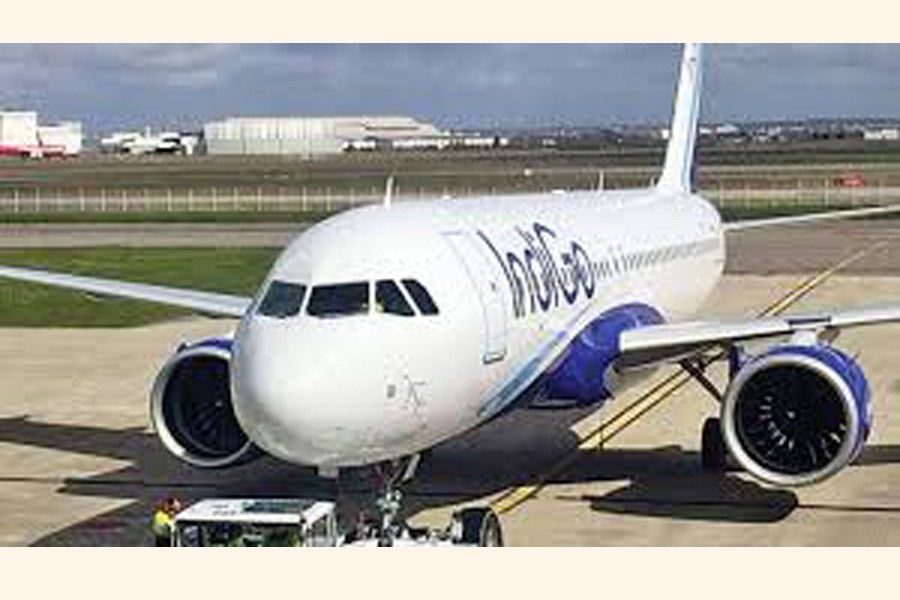India's largest domestic airline, IndiGo, will add 30 per cent capacity this financial year to maintain dominance of the world's fastest growing aviation market, although its parent company has just recorded its first quarterly loss since listing, reports Reuters.
The clear market leader with 189 planes and a 43 per cent share is unwilling to cede ground to rivals like Jet Airways Ltd and SpiceJet Ltd, Chief Commercial Officer Willy Boulter said.
"We are keen to protect our market share," he said in an interview.
The airline has said it plans to add to its fleet of Airbus SE A320neos and ATR 72 turboprops at a rate of around 6 planes a month.
Fares fell almost 10 per cent in the last quarter but any unilateral increase would be outweighed by the number of passengers the airline would lose and that would hurt revenues and Indigo's long-term position, Boulter said.
India's aviation market is growing at 20 per cent annually, but a combination of rising oil prices, high fuel taxes, a weak rupee, low fares and intense competition have driven carriers into the red.
The low-cost carrier's parent Interglobe Aviation reported its first-ever quarterly loss since listing in 2015 of 6.52 billion rupees ($88.99 million) on Wednesday and in the lead-up to the results, shares fell to record lows.
However, as Jet Airways seeks a cash injection, Air India receives fresh government handouts and budget rival SpiceJet's balance sheet weakens, IndiGo is in the best position as it has the lowest costs, said Binit Somaia, South Asia director at the CAPA Centre for Aviation, a consultancy.
IndiGo's costs per available seat kilometre were 14 per cent lower than SpiceJet and 23 per cent lower than Jet Airways in the June quarter, according to data published by the airlines.
"They can ride this out better than others can, without a doubt," Somaia said of IndiGo. His firm estimates Indian airline industry losses could reach $1.9 billion this year, led by full-service carriers.
To conserve its $1.8 billion cash balance, IndiGo said it will keep leasing its A320neos rather than buying some of them as it had previously announced.
The carrier also has an "aspiration" to buy widebody jets for long-haul international flights at a later date, but for now is focused on adding more short-haul international flights to boost revenues, Boulter said.
IndiGo shares closed 7.5 per cent higher on Thursday, the biggest one-day gain since February 2016, and were trading around 1.2 per cent higher at midday on Friday in support of the strategy.
Shares have fallen 27 per cent since January, but that is better than the 73 per cent fall for Jet Airways and 51 per cent decline for SpiceJet.
IndiGo, one of Airbus' biggest global customers with 430 more jets on order, has nearly triple the market share of nearest rival Jet Airways, which recently grounded some planes to conserve cash.


